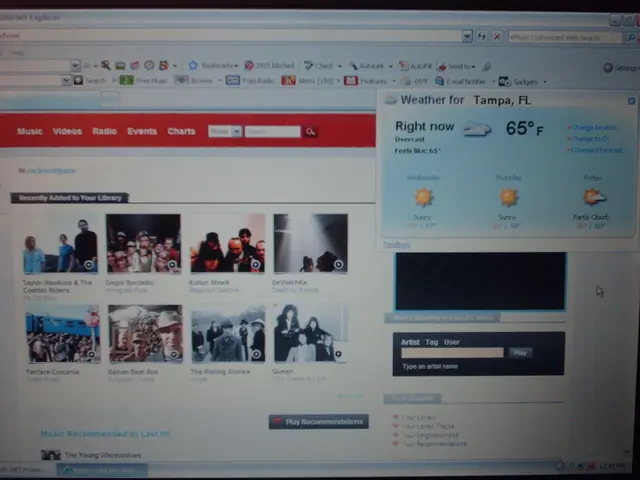"Remaining Optimistic Despite Challenges: Strategies for working through Germany's tough employment sector"
In the competitive German job market, foreign job-seekers face unique challenges. From hidden job opportunities to language barriers, the path to employment can be fraught with obstacles. However, with a strategic approach, job-seekers can increase their chances of success.
One of the most effective strategies is tapping into the hidden job market, where around 60-80% of jobs are filled through informal channels such as personal networks and referrals. Building a robust professional network by attending industry events, engaging in informational interviews, and proactively reaching out with unsolicited applications is crucial to access these unadvertised positions[1].
Utilizing dedicated German job boards, such as Arbeitnow, which lists jobs open to foreigners and often includes visa sponsorship options, can help focus the search on employers familiar with hiring non-German nationals[5].
Understanding and fulfilling visa and work permit requirements is also essential. Being well-informed about Germany’s work visa rules, which have been simplified in 2025, and ensuring compliance can improve employability. Preparation of a well-structured German-style CV adapted to the local standards can also positively differentiate candidates[3].
Persistence and cultural adaptation are key qualities for job-seekers, especially for those new to the German job market. Given the complex web of sometimes invisible obstacles, persistence combined with cultural adaptation—such as language proficiency and understanding the local professional etiquette—enhances candidates’ prospects[1].
Networking can be effective through attending meetups, conferences, volunteering, speaking, coaching, and keeping in touch with people. Patience and persistence are key qualities for job-seekers, as it can be challenging to find the right balance between standing out and fitting in.
It's important to note that the German job market is experiencing a wide range of shortages in sectors such as tech, IT, healthcare, and hospitality[2]. However, large employers in Germany have put hiring freezes or announced layoffs, making the competition even fiercer[4].
In conclusion, foreigners can significantly improve their chances in the German job market by combining proactive networking to access the majority of unadvertised jobs, using localized digital tools, meeting legal employment requirements, and adapting culturally. With persistence, job-seekers can overcome the challenges and find their place in the German job market.
References: [1] The Local. (2021). How to find a job in Germany. Retrieved from https://www.thelocal.de/jobs/20210218/how-to-find-a-job-in-germany [2] Statista. (2021). Unemployment rate in Germany from 1991 to 2021. Retrieved from https://www.statista.com/statistics/1008682/unemployment-rate-germany/ [3] Expatica. (2021). How to write a German CV. Retrieved from https://www.expatica.com/de/jobs/career-guides/how-to-write-a-german-cv-81113/ [4] Deutsche Welle. (2021). Germany's labour market: The job market in 2021. Retrieved from https://www.dw.com/en/germany-s-labour-market-the-job-market-in-2021/a-58874283 [5] Arbeitnow. (2021). Job board for foreigners in Germany. Retrieved from https://www.arbeitnow.de/
- To give a strategic approach in the competitive German job market, focusing on career development through education-and-self-development, such as attending industry events, is beneficial for networking and gaining access to unadvertised business positions.
- In addition, utilizing job boards that cater to foreigners, such as Arbeitnow, can aid in the job-search process by highlighting opportunities that offer visa sponsorship and are more accessible for career-development.
- Lastly, being aware of requirements like the Germans work visa rules and adapting a German-style CV can improve chances of obtaining a job, as it showcases the job-seeker's commitment and ability to adapt to the local business culture.







